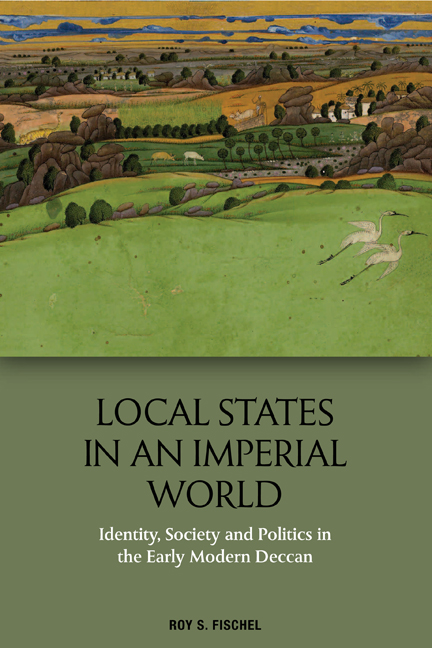Book contents
- Frontmatter
- Contents
- List of Illustrations and Tables
- Note on Transliteration
- Acknowledgements
- Introduction
- 1 Mapping the Deccan
- 2 The Sultanates and the Deccan
- 3 Foreigners, Locals and the World
- 4 Locality, Vernacular and Political Language
- 5 Limitations of the Deccani System
- 6 Conclusion: Hoopoes and Falcons
- Bibliography
- Index
1 - Mapping the Deccan
Published online by Cambridge University Press: 26 September 2020
- Frontmatter
- Contents
- List of Illustrations and Tables
- Note on Transliteration
- Acknowledgements
- Introduction
- 1 Mapping the Deccan
- 2 The Sultanates and the Deccan
- 3 Foreigners, Locals and the World
- 4 Locality, Vernacular and Political Language
- 5 Limitations of the Deccani System
- 6 Conclusion: Hoopoes and Falcons
- Bibliography
- Index
Summary
In her essay on the importance of regional historiography, Romila Thapar writes that the definition of a region is not a simple matter. It derives not only from its natural location, but also from its content and the way it has been understood. The region is further projected back into the past. Often, she continues, the search for identity by people who are, at present, relating it to the region makes them examine their pasts. The region is thus redefined according to one's perspective, from the centre or within the region itself. These perspectives reshape our understanding of both the region and the centre. Thapar sees the region, and the understanding thereof, as dynamic and negotiable, and, no less important, as subject to the perspective of the spectator. Following Massey's ideas of space and place, we can push the perception that any region, with the multiplicity it contains, is the site of a variety of definitions. This provides a good opening point for our discussion of the Deccan. Following on the understanding of the Deccan as a region, we will ask what this region entails, and what political, social and cultural trajectories led to the creation of a socio-political system under the rule of the sultanates.
What is the Deccan?
At first blush, the answer seems straightforward: the Deccan is the upland plateau in peninsular India, one of the four main macro-regions of South Asia. This is a rather generic definition; however, a more accurate one is not easy to find. The name of the region derived from the Sanskrit dakṣiṇa, meaning south (or right-hand, when aligned to the rising sun, similar to yamīn in Arabic and Hebrew). Early reference to dakṣiṇāpadā, ‘with southward foot’, appears in the Rg Veda, but the region lies beyond the interest of Vedic writings. More direct references appear in later texts: in the Mahabharata, Sahadeva, having defeated the Pandya king, leaves a clear geographical trail on his way to the south. Greek literature, too, suggests some familiarity with certain political formation in the south. In these vague references, the term Deccan, in itself external to the region, might include the entirety of the peninsula, with the occasional exclusion of Tamil Nadu.
- Type
- Chapter
- Information
- Local States in an Imperial WorldIdentity, Society and Politics in the Early Modern Deccan, pp. 26 - 65Publisher: Edinburgh University PressPrint publication year: 2020



